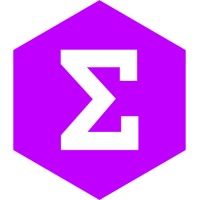Company Details
walt-disney-world
26,408
969,456
71
waltdisneyworld.jobs
0
WAL_2546292
In-progress


Walt Disney World Company CyberSecurity Posture
waltdisneyworld.jobsThe Walt Disney World® Resort features four theme parks — the Magic Kingdom® Park, Epcot®, Disney's Hollywood Studios™, and Disney's Animal Kingdom® Theme Park. More than 20 resort hotels are on-site, offering several thousand rooms of themed accommodations. The nearly 40-square-miles of the Walt Disney World® Resort also feature two water parks, Disney's Blizzard Beach Water Park and Disney's Typhoon Lagoon Water Park; Disney Springs, a daytime and nighttime shopping and entertainment complex; two full-service spas; and recreational facilities including championship golf courses and a 200-acre sports complex. Complete convention and banquet events, from conferences to weddings, are tailored for business and leisure groups. In addition, off-site vacation destinations include Disney's Hilton Head Island Resort and Disney's Vero Beach Resort. Walt Disney World Resort is the largest single-site employer in the United States, employing over 80,000 cast members to bring the magic to life.
Company Details
walt-disney-world
26,408
969,456
71
waltdisneyworld.jobs
0
WAL_2546292
In-progress
Between 750 and 799

 WDW Global Score (TPRM)
WDW Global Score (TPRM)XXXX

Description: The infamous Anubis ransomware gang has listed Disneyland Paris as its latest victim. The group posted details of the alleged breach on its dark web leak site, stating that the stolen data archive totals 64GB. The data was acquired during a breach involving one of Disneyland’s partner companies. The archive includes plans for various park attractions such as Frozen, Crush’s Coaster, Pirates of the Caribbean, Big Thunder Mountain, Autopia, Buzz Lightyear, Orbitron, Casey Jr., Phantom Manor, Ratatouille, and more. The group noted that Disneyland typically signs NDAs with employees, strictly prohibiting them from sharing internal material publicly. The post does not specify whether any customer or visitor information is included in the files. It also does not clarify if a ransom demand has been issued to Disneyland Paris.
Description: In this incident, a 25-year-old California man, Ryan Kramer (alias NullBulge), tricked Disney employees into downloading malware disguised as an AI image-generation tool. Once installed, the malware harvested credentials and provided Kramer with unauthorized access to Disney’s private Slack channels and internal communications. One employee, Matthew Van Andel, inadvertently granted elevated privileges, enabling Kramer to exfiltrate more than 1.1 terabytes of confidential data. Stolen materials included personal information of employees, unreleased film and TV project files, and other proprietary corporate documents. When Van Andel failed to comply with threats of publication, Kramer posted the sensitive data on the BreachForums hacking site. Authorities say at least two other individuals were similarly compromised, and an ongoing investigation aims to determine the full extent of the breach. The exposure of internal communications and unreleased intellectual property poses serious reputational, legal, and financial risks for Disney, while also potentially undermining competitive positioning and violating privacy regulations.
Description: Matthew Van Andel's wrongful termination complaint against Disney stems from a malware incident that compromised the company’s cybersecurity. After installing a seemingly legitimate AI tool, Van Andel and Disney suffered a hack resulting in the exposure of sensitive financial and employee data. Attackers leaked Van Andel's personal information, such as credit card and social security numbers, causing significant distress and requiring extensive efforts to secure affected accounts. The cyber attack's reach into personal and company data, combined with the potential damage to Disney's finances and reputation, depicts a dire situation.
Description: A former Disney employee allegedly hacked the software used by Walt Disney World’s restaurants. He accessed a third-party menu-creation system and altered menus, including changing vital allergy information and locking out other employees. The incident led to unusable menu databases due to changes in the font. The hack may have had reputational and financial impacts on Disney, given the nature of the sabotage and the potential risks to customers with allergies.
Description: An ex-employee of Walt Disney World, possessing access to the company's passwords post-termination, compromised a third-party menu-creation system used by Disney's restaurants. The attack involved altering menu fonts and listings, resulting in unusable menus and potential allergen misinformation, leading to locked employee accounts and misuse of personal employee information.
Description: Hacktivist group NullBulge claims to have released 1.1 terabytes of Disney’s internal Slack archives, reportedly including messages, unreleased projects, code, images, credentials, and internal links. The breach, allegedly facilitated by an inside collaborator, remained unconfirmed by Disney. The leaked data contains sensitive content and personal information, with indications that the legitimacy has been verified by security experts. This incident not only exposes Disney to the risks of intellectual property theft and privacy violations but also raises questions about the security of cloud platforms and SaaS.
Description: ABC News suffered a significant reputational and operational blow following the public exposure of a workplace affair between two of its prominent anchors, Amy Robach and T.J. Holmes, in November 2022. The scandal led to their immediate termination on January 27, 2023, disrupting the network’s on-air talent lineup and internal workplace culture. The fallout extended beyond personnel changes, as the incident drew widespread media scrutiny, eroding public trust in ABC’s professional standards and ethical oversight. The anchors’ subsequent launch of a competing podcast ('Amy & T.J.') in December 2023 further compounded the network’s challenges by diverting audience attention and creating a rival platform leveraging their former ABC-associated fame. The long-term impact included the loss of two high-profile journalists, potential advertisers’ hesitation due to the controversy, and lingering questions about ABC’s handling of workplace relationships. The scandal also set a precedent for how the network manages internal conduct, with ripple effects on employee morale and external perceptions of its brand integrity.
Description: The California Office of the Attorney General reported a data breach involving Disney Consumer Products and Interactive Media (DCPI) on July 30, 2016. The breach occurred on July 9 and July 12, 2016, involving unauthorized access to the Playdom Forum servers, compromising usernames, email addresses, passwords, and IP addresses of user accounts, affecting an unspecified number of individuals.


No incidents recorded for Walt Disney World in 2026.
No incidents recorded for Walt Disney World in 2026.
No incidents recorded for Walt Disney World in 2026.
WDW cyber incidents detection timeline including parent company and subsidiaries

The Walt Disney World® Resort features four theme parks — the Magic Kingdom® Park, Epcot®, Disney's Hollywood Studios™, and Disney's Animal Kingdom® Theme Park. More than 20 resort hotels are on-site, offering several thousand rooms of themed accommodations. The nearly 40-square-miles of the Walt Disney World® Resort also feature two water parks, Disney's Blizzard Beach Water Park and Disney's Typhoon Lagoon Water Park; Disney Springs, a daytime and nighttime shopping and entertainment complex; two full-service spas; and recreational facilities including championship golf courses and a 200-acre sports complex. Complete convention and banquet events, from conferences to weddings, are tailored for business and leisure groups. In addition, off-site vacation destinations include Disney's Hilton Head Island Resort and Disney's Vero Beach Resort. Walt Disney World Resort is the largest single-site employer in the United States, employing over 80,000 cast members to bring the magic to life.

Sony’s purpose is simple. We aim to fill the world with emotion, through the power of creativity and technology. We want to be responsible for getting hearts racing, stirring ambition, and putting a smile on the faces of our customers. That challenge, combined with our spirit of innovation, motivate

Welcome to Entain. Our journey as Entain began when we evolved from GVC Holdings on 9th December 2020, but our brands have been paving the way and making history since the 1880s. Today, we’re one of the world’s largest sports betting and gaming entertainment groups – a FTSE 100 company that is h

NBCUniversal is one of the world’s leading media and entertainment companies. We create world-class content, which we distribute across our portfolio of film, television, and streaming, and bring to life through our global theme park destinations, consumer products, and experiences. We own and opera

Netflix is one of the world's leading entertainment services, with over 300 million paid memberships in over 190 countries enjoying TV series, films and games across a wide variety of genres and languages. Members can play, pause and resume watching as much as they want, anytime, anywhere, and can c
TKO Group Holdings, Inc. (NYSE: TKO) is a premium sports and entertainment company. TKO owns iconic properties including UFC, the world’s premier mixed martial arts organization; WWE, the global leader in sports entertainment; and PBR, the world’s premier bull riding organization. Together, these pr
Topgolf is the ultimate instigator of play. Thanks to our 100+ venues around the globe, which are powered by industry-leading Toptracer technology, we're leading the charge of modern golf. We offer a variety of tech-driven games, a top-tier food and drink menu, space to host large events, and a vibe

Paramount is a leading media and entertainment company that creates premium content and experiences for audiences worldwide. Driven by iconic studios, networks and streaming services, Paramount's portfolio of consumer brands includes CBS, Showtime Networks, Paramount Pictures, Skydance Animation, Sk

Six Flags Entertainment Corporation (NYSE: FUN) is North America’s largest regional amusement-resort operator with 26 amusement parks, 15 water parks and 9 resort properties across 16 states in the U.S., Canada and Mexico. Focused on its purpose of making people happy, Six Flags provides fun, immers
Universal Music Group exists to shape culture through the power of artistry. UMG is the world leader in music-based entertainment, with a broad array of businesses engaged in recorded music, music publishing, merchandising and audiovisual content. Featuring the most comprehensive catalogue of record
.png)
CrowdStrike, Palo Alto Networks, Fortinet, SentinelOne, Globant, BlackBerry, and Rapid7 are the seven Cybersecurity stocks to watch today,...
The past, present, and future of cybercrime. Brought to you by Cybersecurity Ventures and Evolution Equity Partners.
Hacker's Movie Guide” with Foreword by Steve Wozniak, co-founder of Apple.
The magic at Disney World hit a strange snag this week after an unexpected cyber incident.
Walt Disney World isn't exactly the kind of place where guests expect to deal with cybersecurity issues. It's a vacation bubble built to...
Saryu Nayyar's journey from a small-town upbringing in India to becoming one of the most visionary leaders in cybersecurity is defined by...
Each year, the healthcare industry organizes a full slate of events that help executives stay on top of the latest trends and innovations in...
Learn more about technology internships at Disney through our virtual information sessions hosted by Disney recruiters!

Explore insights on cybersecurity incidents, risk posture, and Rankiteo's assessments.
The official website of Walt Disney World is https://http://www.waltdisneyworld.jobs.
According to Rankiteo, Walt Disney World’s AI-generated cybersecurity score is 768, reflecting their Fair security posture.
According to Rankiteo, Walt Disney World currently holds 0 security badges, indicating that no recognized compliance certifications are currently verified for the organization.
According to Rankiteo, Walt Disney World has not been affected by any supply chain cyber incidents, and no incident IDs are currently listed for the organization.
According to Rankiteo, Walt Disney World is not certified under SOC 2 Type 1.
According to Rankiteo, Walt Disney World does not hold a SOC 2 Type 2 certification.
According to Rankiteo, Walt Disney World is not listed as GDPR compliant.
According to Rankiteo, Walt Disney World does not currently maintain PCI DSS compliance.
According to Rankiteo, Walt Disney World is not compliant with HIPAA regulations.
According to Rankiteo,Walt Disney World is not certified under ISO 27001, indicating the absence of a formally recognized information security management framework.
Walt Disney World operates primarily in the Entertainment Providers industry.
Walt Disney World employs approximately 26,408 people worldwide.
Walt Disney World presently has no subsidiaries across any sectors.
Walt Disney World’s official LinkedIn profile has approximately 969,456 followers.
Walt Disney World is classified under the NAICS code 71, which corresponds to Arts, Entertainment, and Recreation.
Yes, Walt Disney World has an official profile on Crunchbase, which can be accessed here: https://www.crunchbase.com/organization/walt-disney-world.
Yes, Walt Disney World maintains an official LinkedIn profile, which is actively utilized for branding and talent engagement, which can be accessed here: https://www.linkedin.com/company/walt-disney-world.
As of January 25, 2026, Rankiteo reports that Walt Disney World has experienced 8 cybersecurity incidents.
Walt Disney World has an estimated 7,351 peer or competitor companies worldwide.
Incident Types: The types of cybersecurity incidents that have occurred include Ransomware and Breach.
Detection and Response: The company detects and responds to cybersecurity incidents through an remediation measures with extensive efforts to secure affected accounts..
Title: Disney Slack Archives Breach by NullBulge
Description: Hacktivist group NullBulge claims to have released 1.1 terabytes of Disney’s internal Slack archives, reportedly including messages, unreleased projects, code, images, credentials, and internal links. The breach, allegedly facilitated by an inside collaborator, remained unconfirmed by Disney. The leaked data contains sensitive content and personal information, with indications that the legitimacy has been verified by security experts. This incident not only exposes Disney to the risks of intellectual property theft and privacy violations but also raises questions about the security of cloud platforms and SaaS.
Type: Data Breach
Attack Vector: Insider Threat
Threat Actor: NullBulge
Motivation: Hacktivism
Title: Former Disney Employee Hacks Restaurant Software
Description: A former Disney employee allegedly hacked the software used by Walt Disney World’s restaurants. He accessed a third-party menu-creation system and altered menus, including changing vital allergy information and locking out other employees. The incident led to unusable menu databases due to changes in the font. The hack may have had reputational and financial impacts on Disney, given the nature of the sabotage and the potential risks to customers with allergies.
Type: Malicious Insider
Attack Vector: Unauthorized Access
Vulnerability Exploited: Insider Threat
Threat Actor: Former Disney Employee
Motivation: Sabotage
Title: Malware Incident at Disney
Description: Matthew Van Andel's wrongful termination complaint against Disney stems from a malware incident that compromised the company’s cybersecurity. After installing a seemingly legitimate AI tool, Van Andel and Disney suffered a hack resulting in the exposure of sensitive financial and employee data. Attackers leaked Van Andel's personal information, such as credit card and social security numbers, causing significant distress and requiring extensive efforts to secure affected accounts. The cyber attack's reach into personal and company data, combined with the potential damage to Disney's finances and reputation, depicts a dire situation.
Type: Malware Incident
Attack Vector: Malicious AI tool installation
Title: Disney Data Breach via Malware Disguised as AI Tool
Description: A 25-year-old California man, Ryan Kramer (alias NullBulge), tricked Disney employees into downloading malware disguised as an AI image-generation tool. Once installed, the malware harvested credentials and provided Kramer with unauthorized access to Disney’s private Slack channels and internal communications. One employee, Matthew Van Andel, inadvertently granted elevated privileges, enabling Kramer to exfiltrate more than 1.1 terabytes of confidential data. Stolen materials included personal information of employees, unreleased film and TV project files, and other proprietary corporate documents. When Van Andel failed to comply with threats of publication, Kramer posted the sensitive data on the BreachForums hacking site. Authorities say at least two other individuals were similarly compromised, and an ongoing investigation aims to determine the full extent of the breach. The exposure of internal communications and unreleased intellectual property poses serious reputational, legal, and financial risks for Disney, while also potentially undermining competitive positioning and violating privacy regulations.
Type: Data Breach
Attack Vector: Phishing, Malware
Vulnerability Exploited: Human error, Credential harvesting
Threat Actor: Ryan Kramer (alias NullBulge)
Motivation: Data exfiltration, Financial gain, Public disclosure
Title: Anubis Ransomware Attack on Disneyland Paris
Description: The Anubis ransomware gang has listed Disneyland Paris as its latest victim, posting details of the alleged breach on its dark web leak site, claiming a 64GB data archive was stolen.
Date Publicly Disclosed: 2025-06-12
Type: Ransomware Attack
Threat Actor: Anubis Ransomware Gang
Motivation: Financial GainData Leak
Title: Data Breach at Disney Consumer Products and Interactive Media
Description: The California Office of the Attorney General reported a data breach involving Disney Consumer Products and Interactive Media (DCPI) on July 30, 2016. The breach occurred on July 9 and July 12, 2016, involving unauthorized access to the Playdom Forum servers, compromising usernames, email addresses, passwords, and IP addresses of user accounts, affecting an unspecified number of individuals.
Date Detected: 2016-07-30
Date Publicly Disclosed: 2016-07-30
Type: Data Breach
Attack Vector: Unauthorized Access
Common Attack Types: The most common types of attacks the company has faced is Breach.
Identification of Attack Vectors: The company identifies the attack vectors used in incidents through Internal Collaborator, AI tool installation and Phishing email with malware disguised as AI tool.

Data Compromised: Messages, Unreleased projects, Code, Images, Credentials, Internal links
Brand Reputation Impact: Significant
Identity Theft Risk: High

Systems Affected: Menu-creation system
Operational Impact: Unusable menu databases
Brand Reputation Impact: High

Data Compromised: Financial data, Employee data, Personal information including credit card and social security numbers
Brand Reputation Impact: significant distresspotential damage to Disney's reputation

Data Compromised: Personal information of employees, Unreleased film and tv project files, Proprietary corporate documents
Systems Affected: Slack channelsInternal communications
Brand Reputation Impact: Serious reputational risks
Legal Liabilities: Potential legal risks

Data Compromised: Construction and renovation files, Plans for various park attractions

Data Compromised: Usernames, Email addresses, Passwords, Ip addresses
Systems Affected: Playdom Forum servers
Commonly Compromised Data Types: The types of data most commonly compromised in incidents are Messages, Unreleased Projects, Code, Images, Credentials, Internal Links, , Menu Data, Employee Personal Information, , Financial Data, Employee Data, Personal Information, , Personal Information, Unreleased Film And Tv Project Files, Proprietary Corporate Documents, , Construction And Renovation Files, Plans For Various Park Attractions, , Usernames, Email Addresses, Passwords, Ip Addresses and .

Entity Name: Disney
Entity Type: Entertainment
Industry: Entertainment

Entity Name: Walt Disney World
Entity Type: Entertainment and Hospitality
Industry: Entertainment
Location: Florida, USA

Entity Name: Disney
Entity Type: Entertainment Company
Industry: Entertainment

Entity Name: Disney
Entity Type: Corporation
Industry: Entertainment
Location: California, USA

Entity Name: Disneyland Paris
Entity Type: Entertainment
Industry: Theme Park
Location: Paris, France

Entity Name: Disney Consumer Products and Interactive Media
Entity Type: Company
Industry: Entertainment
Location: California
Customers Affected: Unspecified number of individuals

Remediation Measures: extensive efforts to secure affected accounts

Type of Data Compromised: Messages, Unreleased projects, Code, Images, Credentials, Internal links
Sensitivity of Data: High
File Types Exposed: textimagescode

Type of Data Compromised: Financial data, Employee data, Personal information
Personally Identifiable Information: credit card numberssocial security numbers

Type of Data Compromised: Personal information, Unreleased film and tv project files, Proprietary corporate documents
Sensitivity of Data: High
Data Exfiltration: 1.1 terabytes of confidential data
Personally Identifiable Information: Employee personal information

Type of Data Compromised: Construction and renovation files, Plans for various park attractions
Number of Records Exposed: 39,000 files
Sensitivity of Data: High
File Types Exposed: ImagesVideosDrawingsEngineering-related work

Type of Data Compromised: Usernames, Email addresses, Passwords, Ip addresses
Prevention of Data Exfiltration: The company takes the following measures to prevent data exfiltration: extensive efforts to secure affected accounts, .

Recommendations: Enhance security measures for cloud platforms and SaaS, Monitor for insider threatsEnhance security measures for cloud platforms and SaaS, Monitor for insider threats

Source: Hackread.com

Source: California Office of the Attorney General
Date Accessed: 2016-07-30

Source: The List

Source: USA Today
Additional Resources: Stakeholders can find additional resources on cybersecurity best practices at and Source: Hackread.com, and Source: California Office of the Attorney GeneralDate Accessed: 2016-07-30, and Source: Page SixDate Accessed: October 2025, and Source: The List, and Source: USA Today.

Investigation Status: Ongoing

Investigation Status: Unverified

Entry Point: Internal Collaborator

Entry Point: AI tool installation

Entry Point: Phishing email with malware disguised as AI tool

High Value Targets: Disneyland Paris,
Data Sold on Dark Web: Disneyland Paris,

Root Causes: Insider threat facilitated by an internal collaborator

Root Causes: Human error, Credential harvesting
Last Attacking Group: The attacking group in the last incident were an NullBulge, Ex-Employee, Former Disney Employee, Ryan Kramer (alias NullBulge) and Anubis Ransomware Gang.
Most Recent Incident Detected: The most recent incident detected was on 2016-07-30.
Most Recent Incident Publicly Disclosed: The most recent incident publicly disclosed was on 2016-07-30.
Most Significant Data Compromised: The most significant data compromised in an incident were messages, unreleased projects, code, images, credentials, internal links, , Menu fonts and listings, Employee personal information, , financial data, employee data, personal information including credit card and social security numbers, , Personal information of employees, Unreleased film and TV project files, Proprietary corporate documents, , Construction and renovation files, Plans for various park attractions, , usernames, email addresses, passwords, IP addresses and .
Most Significant System Affected: The most significant system affected in an incident was Third-party menu-creation systemEmployee accounts and and Slack channelsInternal communications and Playdom Forum servers.
Most Sensitive Data Compromised: The most sensitive data compromised in a breach were usernames, Menu fonts and listings, Employee personal information, employee data, personal information including credit card and social security numbers, IP addresses, passwords, messages, images, unreleased projects, email addresses, internal links, Proprietary corporate documents, Personal information of employees, Plans for various park attractions, code, Unreleased film and TV project files, Construction and renovation files, credentials and financial data.
Number of Records Exposed in Most Significant Breach: The number of records exposed in the most significant breach was 39.0K.
Most Significant Recommendation Implemented: The most significant recommendation implemented to improve cybersecurity was Monitor for insider threats and Enhance security measures for cloud platforms and SaaS.
Most Recent Source: The most recent source of information about an incident are USA Today, California Office of the Attorney General, The List, Hackread.com and Page Six.
Current Status of Most Recent Investigation: The current status of the most recent investigation is Ongoing.
Most Recent Entry Point: The most recent entry point used by an initial access broker were an Phishing email with malware disguised as AI tool, Internal Collaborator and AI tool installation.
Most Significant Root Cause: The most significant root cause identified in post-incident analysis was Insider threat facilitated by an internal collaborator, Post-termination access to company passwords, Human error, Credential harvesting.
.png)
Typemill is a flat-file, Markdown-based CMS designed for informational documentation websites. A reflected Cross-Site Scripting (XSS) exists in the login error view template `login.twig` of versions 2.19.1 and below. The `username` value can be echoed back without proper contextual encoding when authentication fails. An attacker can execute script in the login page context. This issue has been fixed in version 2.19.2.
A DOM-based Cross-Site Scripting (XSS) vulnerability exists in the DomainCheckerApp class within domain/script.js of Sourcecodester Domain Availability Checker v1.0. The vulnerability occurs because the application improperly handles user-supplied data in the createResultElement method by using the unsafe innerHTML property to render domain search results.
A Remote Code Execution (RCE) vulnerability exists in Sourcecodester Modern Image Gallery App v1.0 within the gallery/upload.php component. The application fails to properly validate uploaded file contents. Additionally, the application preserves the user-supplied file extension during the save process. This allows an unauthenticated attacker to upload arbitrary PHP code by spoofing the MIME type as an image, leading to full system compromise.
A UNIX symbolic link following issue in the jailer component in Firecracker version v1.13.1 and earlier and 1.14.0 on Linux may allow a local host user with write access to the pre-created jailer directories to overwrite arbitrary host files via a symlink attack during the initialization copy at jailer startup, if the jailer is executed with root privileges. To mitigate this issue, users should upgrade to version v1.13.2 or 1.14.1 or above.
An information disclosure vulnerability exists in the /srvs/membersrv/getCashiers endpoint of the Aptsys gemscms backend platform thru 2025-05-28. This unauthenticated endpoint returns a list of cashier accounts, including names, email addresses, usernames, and passwords hashed using MD5. As MD5 is a broken cryptographic function, the hashes can be easily reversed using public tools, exposing user credentials in plaintext. This allows remote attackers to perform unauthorized logins and potentially gain access to sensitive POS operations or backend functions.

Get company history
















Every week, Rankiteo analyzes billions of signals to give organizations a sharper, faster view of emerging risks. With deeper, more actionable intelligence at their fingertips, security teams can outpace threat actors, respond instantly to Zero-Day attacks, and dramatically shrink their risk exposure window.
Identify exposed access points, detect misconfigured SSL certificates, and uncover vulnerabilities across the network infrastructure.
Gain visibility into the software components used within an organization to detect vulnerabilities, manage risk, and ensure supply chain security.
Monitor and manage all IT assets and their configurations to ensure accurate, real-time visibility across the company's technology environment.
Leverage real-time insights on active threats, malware campaigns, and emerging vulnerabilities to proactively defend against evolving cyberattacks.




